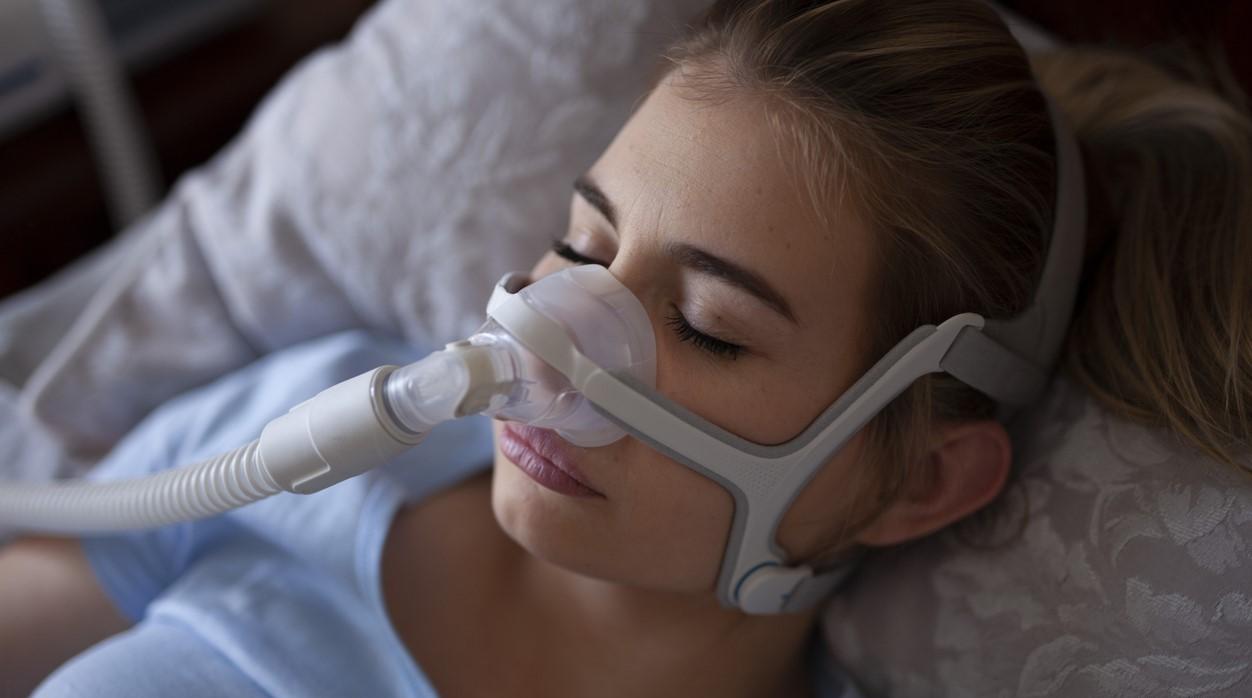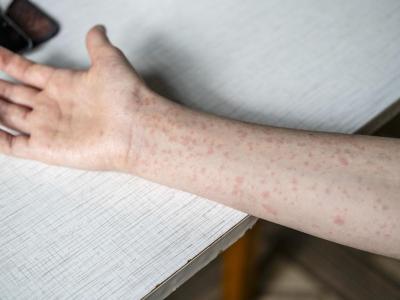A study yesterday in the journal Sleep suggests that adults with obstructive sleep apnea (OSA) were more likely to experience symptoms of long COVID compared with adults without apnea. The findings are based on the National Institutes of Health Researching COVID to Enhance Recovery (RECOVER) Initiative.
Sleep apnea in 5% of adults
Researchers used the electronic health data of 2.2 million Americans—both children and adults—who tested positive for COVID-19 from March 2020 to February 2022. They studied electronic health record codes from three networks to identify patients with preexisting OSA: the National COVID Cohort Collaborative (N3C); the National Patient-Centered Clinical Research Network (PCORnet), which is limited to adults; and PCORnet's pediatric population, anchored in PEDSnet, a pediatric learning health system within PCORnet.
In total, OSA occurred in 5% of adults and less than 2% of children included in the study.
The researchers then used machine learning to assess follow-up symptoms and medical visits to determine which people likely had long COVID. About 5% of adults in the N3C study with OSA, 17% of adults in PCORnet, and less than 5% of children in PEDSnet were suspected to have developed long COVID, but only those patients included in the N3C study were seen at long COVID clinics.
Persistent long-COVID symptoms were documented more than 30 days after initial disease diagnosis in PCORnet, and certain symptoms and conditions indicated long COVID in PEDSnet, inclucing myocarditis.
Patients were excluded if they died within 30 days of their positive COVID-19 test.
75% higher risk of long COVID
The unadjusted odds ratio for someone with OSA to experience long COVID ranged from 1.41 to 3.93. After adjusting for other risk factors for long COVID, including obesity and age, the odds ratios diminished but were still significant. The greatest effect was seen in the N3C study, where patients with OSA were 75% more likely to experience long COVID.
In PCORnet, the increased odds of having long COVID were 12% if the patient also had documented OSA.
"The association was attenuated yet still elevated after successively adjusting for demographic factors, hospitalization, obesity, and comorbidities," the authors said.
Of note, women in the N3C study had an 89% increased likelihood of having long COVID if they had OSA, compared with a 59% increased risk for men.
In children, however, the unadjusted risk of OSA and long COVID disappeared after adjusting for obesity, with no significant difference in the odds of probable long COVID when comparing children with and without OSA (PEDSnet: 1.05; 95% confidence interval [CI], 0.89, 1.24).
Long COVID, apnea, and obesity
The authors said their study shows that the observed risk people with OSA have for developing long COVID "may in part be due to confounding from underlying associations between obesity, or other comorbidities."
In a press release on the study from the National Heart, Lung, and Blood Institute (NHLBI), senior author Lorna E. Thorpe, PhD, MPH, of New York University’s Grossman School of Medicine said, "Part of the challenge is that many of the risk factors for sleep apnea are also risk factors for COVID-19 outcomes."
The authors noted there were several key pieces of data missing from the analysis, including vaccination status, race and ethnicity, and an index of which long-COVID symptoms were most commonly seen in patients who had OSA.
People with obstructive sleep apnea should also keep up with their vaccinations to minimize the risk of infection.
Nonetheless, they said these findings suggest that patients with OSA be monitored for post-infection symptoms.
"We still have a lot to learn about the long-term effects of this virus, but this study could inform clinical care by identifying patients who may benefit from closer monitoring," said Marishka K. Brown, PhD, director of the National Center on Sleep Disorders Research at the NHLBI. She was not involved in the study.
"People with obstructive sleep apnea should also keep up with their vaccinations to minimize the risk of infection," added Thorpe.



















